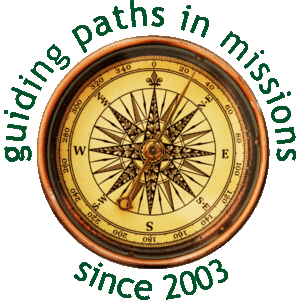There is an article on “Seven Characteristics of Effective Church Planters” that I consider a timeless reference piece.
There are several reasons I think about it that way:
-
It is based on actual research of actual church planters across a wide scope of location and types of target audiences on real fields (not North America).
-
It predates many of the faddish missiology trends and rabbit-trails of today’s pragmatism-at-all-costs mindset — which is too prevalent in missions today, IMHO.
-
It empirically verifies key biblical characteristics which are essential but often lost in CP/CPM training.

Here is my own summary of the seven characteristics:
- More effective church planters spend more time in prayer. The more time spent in prayer, the more effective the church planter.

- More effective church planters use more broadly based evangelistic efforts. “Community wide campaigns” are modified in a restricted or resistant community environment. The most effective church planters use a variety of outreach methods and invest more time with those who are more interested This principle supports the concep[t of having CP teams.

- More effective church planters are more flexible in their methods. The most effective church planters utilize culturally relevant creativity in their outreaches.

- More effective church planters are more committed to a doctrinal position. It may be a surprise to the 21st-century church planter, but a strong confidence in biblical doctrine and doctrinal clarity produces better results.

- More effective church planters establish greater credibility. Workers who have high credibility plant more churches. Credibility is reflected in reputation and service/participation/identification with, to, and in the community and also in building relationships with key community leaders. This has an impact on BAM work in the way that Greg L. categorizes BAM as job takers, job makers, and job fakers! Job fakers tend to be a slow burn into attrition. NOTE: social work s not the primary focus; Gospel proclamation is primary.

- More effective church planters have a greater ability to identify and then work with people who have a loosely structured religion. Typically, church planters find more fruit among people that are more open to change or are already in a change mode. This would include people at key points of change in their life, young adults shaping their lives, individuals marginalized, new housing projects, new business start-up owners, and employees, etc.

- More effective church planters have a greater ability to incorporate new converts into evangelistic outreach. This is the indigenization principle put into practice. As soon as possible, new converts are given roles of responsibility, however small. They are also expected and held accountable to consistent obedience to the new truths they are learning and to share their faith.

—–
Copyright © 1992 Evangelism and Missions Information Service (EMIS). Now archived with Missio-Nexus at https://missionexus.org/seven-keys-to-effective-church-planting/
Copyright © 1992 Evangelism and Missions Information Service (EMIS). Published in EMQ on October 1, 1992, by Dick Grady and Glenn Kendall

Help us guide churches and missionaries to become the hero of their own unique missions story by donating to Propempo International.

Please login to comment.